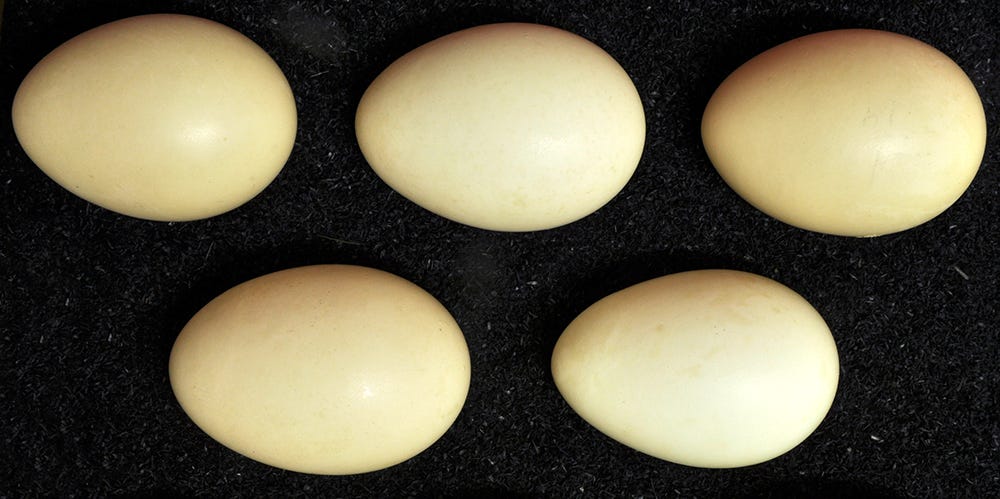Rytius Records (Substack Edition), Ch. 20
Chapter 20. Duck Eggs—Wednesday, February 6, 2143
20. Duck Eggs—Wednesday, February 6, 2143
The ducks honked and screamed Rytius awake from his nightmare of a pumpkin eating his hand as he attempted to light the candle in its belly. The lightbulb in his closet flickered and dimmed as he dressed, and so he hurried outside to see what the matter could be. The pen was flooded, and the hens were mad because they could not protect their eggs from the cold. The brook behind the house had overflowed its modest bounds and strengthened sufficiently to carry refuse from the Brookside market upstream, and so the rotten wood of a old, broken milk crate had jammed the paddle blades of his ginny. The twisted wire frame of the crate was intact and only slightly deformed, but its deformation had been sufficient to break the single plank of decaying, discolored wood that it had retained, which then crumbled and slid out of the mechanical tension grip of the frame. Rytius hardly touched the moldy board jamming the paddle before it disintegrated. The wire frame of the crate was set against the brook like the fish trap had been set against the Watsessing at Soverel Park, and Rytius observed how the flow into the box cut waves and ripples on the surface, which were then cut again, by identical wires, upon flowing out—squaring the modulation of the fluid, flowing back into itself.

He had to lift the pen up with his back to push a pair of bricks underneath its stilts, to drain it and to ensure that it remained draining. He told himself that the ducks might find the tilt engaging as he screwed the door hinge back into place, so that it would close correctly against the wind and rain, and he did not fail to collect the eggs, not only for his breakfast but also for the selling.
He had no idea what game he would play for the council, though he knew what his subject would be. It was too large. He worried, but not much, as he prepared a huevo ranchero of a single fried duck egg, a reskilleted piece of bacon, chopped in the pan, there, mixed with the egg, now a scramble, and some sort of greenery, and he chose some parsley from the icebox, washed it inadequately, he knew, and prepared himself for some grains of sandy soil. He didn’t even chop it as much as he had chopped the bacon, but he rationalized this half-taken half measure as too minor to matter, because his teeth would do the work his hands hadn’t. He would do the work, and not in the sense of taking it up to do it, but rather that in one way or another, the need satisfied by the work was so necessary to his being that it was thrust upon him every moment of every day. A living human requires to participate in human metabolic processes. As soon as a child is born, those processes are social. And so we grow.
Rytius ate quickly. He finished dressing, packed some drawing materials, and, remembering his binoculars, armed himself in a rare manner, with some dusty fiberglass body armor and a matching pair of six guns.


